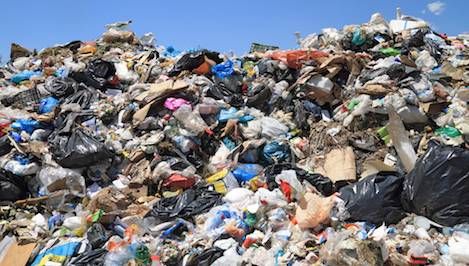
Get Ready For Zero Waste Week With These Books!
Even though some people – naming no presidents – still believe that climate change is a myth or a conspiracy, it is a proven scientific fact that our planet is getting the hots, and if we don’t do something to change this, our future generations won’t have a planet to live in at all.
The heritage we leave behind should be a common concern. More than ever, people are finding ways to reduce their footprint on Earth. For some, helping Earth is veganism; for others, it is sustainability and minimalism. I started with Zero Waste.
Zero Waste aims to more than just recycling; its goal is to make no garbage at all that will end up in a landfill. No, you do not need to move to a cabin in the woods, go fishing and hunting or harvesting your own food – although you might, if that’s how you roll! Zero Waste focus mainly on buying in bulk (as in, products with no package), and in avoiding plastic at all costs and yes, you can do this even if, like me, you live in a small town.
When I first started researching Zero Waste, blogs were my primary source of information. It’s easy to find reliable accounts of people pursuing this kind of lifestyle, tips on disposable things you can swap for reusable ones, and even DIY recipes for home products. Still, like any good bookworm, I ended up turning to books to guide me in my journey. I also asked the community of zero wasters on Facebook – Zero Waste Heroes – about their favourite and most reliable books.
From Zero Waste lifestyle through minimalist living and composting, there are a few books that can help you become Zero Waste with no hassle. Here’s a list of them:
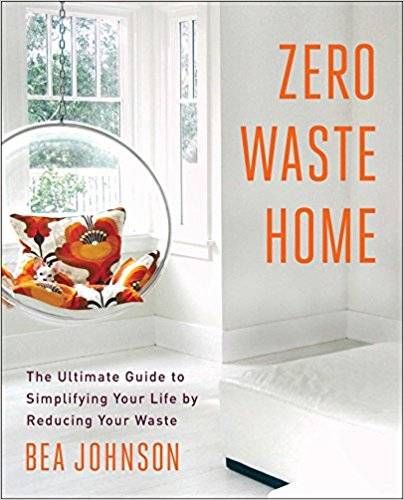
Bea Johnson became a zero waster back in 2008. In this book, she explains how she went from living in a 3,000 square feet home, with a different dining set for each room, to living in a small flat with only the basic necessities. Soon enough she was also buying things in bulk and making her own products. All the tips she has learned in her years as a zero waster are gathered in this book, which has become a sort of bible for the Zero Waste pursuer.
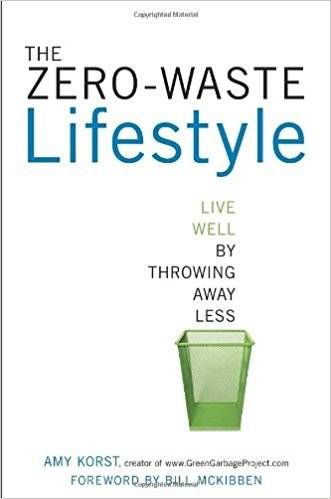
This book is a guide on how to make less garbage and living minimalist. It spreads out ideas regarding food buying and consumption, compost making, home product making, and how to swap those nasty disposable containers and products for reusable ones which will last you a lifetime.
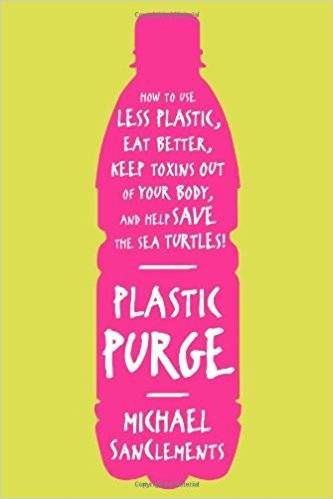
Plastic is our planet’s most foul enemy. Because it is so cheap to make, most companies use it as their preferred form of packaging. The problem is that it takes ages to disappear from our environment, and a large part of it ends up in the ocean. On top of that, most plastic isn’t even recyclable; unlike glass or paper, soon enough a plastic recycling life will end and it will finish its days in a landfill.
In this book the author exposes the ugly truth about plastic – it releases toxins that are harmful to the planet, and to our bodies – and he teaches us how to refuse it from our lives.
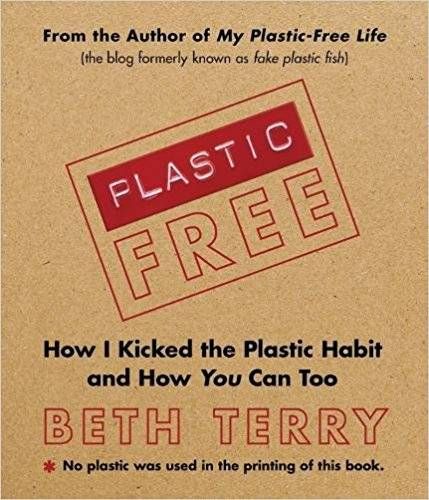
Yet another book about the evil of plastic!
This book lays out all of the environmental and health problems originating from plastic, as well as tips to reduce the amount of plastic we use. It also leads us to communities of people who are trying to reduce plastic, because everyone knows that when it comes to getting involved and focused on a goal, the more we have by our side, the merrier.
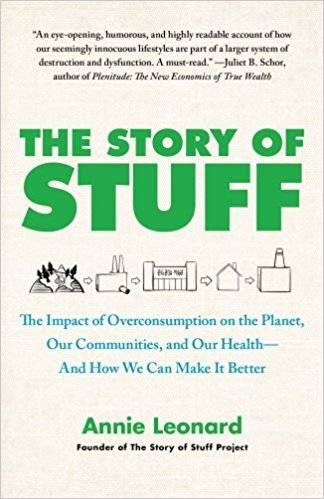
We want it all, don’t we? We perk up at the idea of a freebie, even if we end up forgetting whatever was given to us in a drawer somewhere, just a few days later. Consuming and collecting things without giving it a second thought is ingrained in our minds since childhood. All the presents underneath our Christmas trees are proof of that.
We can wipe out this almost innate need of possession from our minds, though, and learn to want only what we truly need. If we learn how stuff is made, we will do it a lot quicker.
Leonard has researched and tracked the life of the objects we buy, how they are produced and shipped to the final consumer, and where it all ends up once it is discarded. By making this journey with her, we’ll realise we are part of the problem and, hopefully, we will want to get off this train and live a more decluttered life.
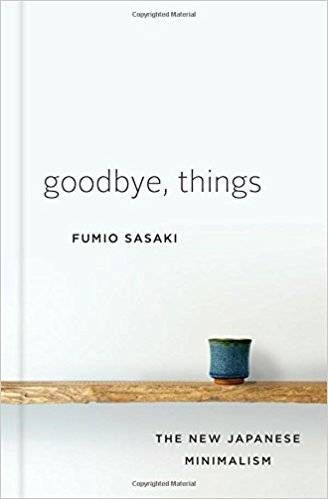
Many times I feel that, if my house is tidied up, my life is tidied up. If the spaces I’m usually in are a mess, I feel like a mess. Owning things can lead to things owning us.
Sasaki was dealing with many of the same problems a lot of us deal with in our busy daily lives. In an attempt to find something that could change that, he decided to start living only with the bare minimum. In the end, he found the inner peace he so much craved.
In the book, he shares tips to help you achieve the same while reporting his own journey, and explaining why reaching this point in his life has made him a happier person.
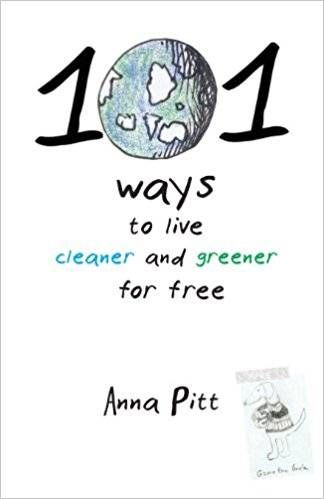
The general idea is that living a more sustainable life is spending more money. This couldn’t be further from the truth. Yes, biologic products are usually more expensive, but by reducing your waste, you’re also reducing your consumption. In the end, because you are buying less and buying things that will last longer, you will save money in the short and long run.
Sometimes the most challenging thing of going Zero Waste is convincing the rest of your household to go along. Anna Pitt guides families through 101 ways in which they can live a more environment-friendly life without spending any money.
Neat, right?
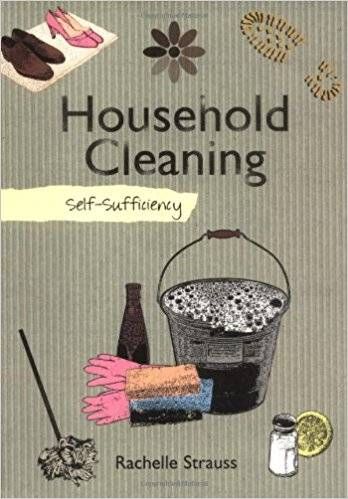
Making your own products at home has many advantages: you can choose your own packaging, you know which ingredients they contain, and you can even save some money.
In this guide, you will find that most cleaning products can be made with simple ingredients that you usually have around the house – like baking soda, lemon, and vinegar – while realising how many harmful chemicals our regular supermarket-bought products contain.
A must-have when it comes to cut down plastic as well since that’s what most products come in.
Compost: How To Use, How To Make, Everyday Tips by Rachelle Strauss
A big part of reducing your waste is through composting. Some cities even have their own composting program, but many people prefer to make their own, even living in a small flat. That’s my case. I live in a one-bedroom apartment and even though my city collects compost along with our regular garbage, I decided to take matters into my own hands with Bokashi composting. I’m even enjoying doing it.
With this guide, you will learn what compost is, how to make it, and what to do with it once you’ve made it. If your city doesn’t have a composting program, fear not. It’s easier than most youtube tutorials make it seem, and there’s a lot of methods to choose from.
The author of the last two books is also one of the administers of Zero Waste Heroes, a Facebook group created to share experiences, tips, and concerns we come across in the pursuit of a Zero Waste lifestyle.
If you’re interested in learning more about Zero Waste, come and join us there!
Zero Waste Week – the first of September – is coming up, so I hope these books will inspire you to help Earth.
As they very wisely point out, it’s the only planet with chocolate – and books! It’s worth saving.














